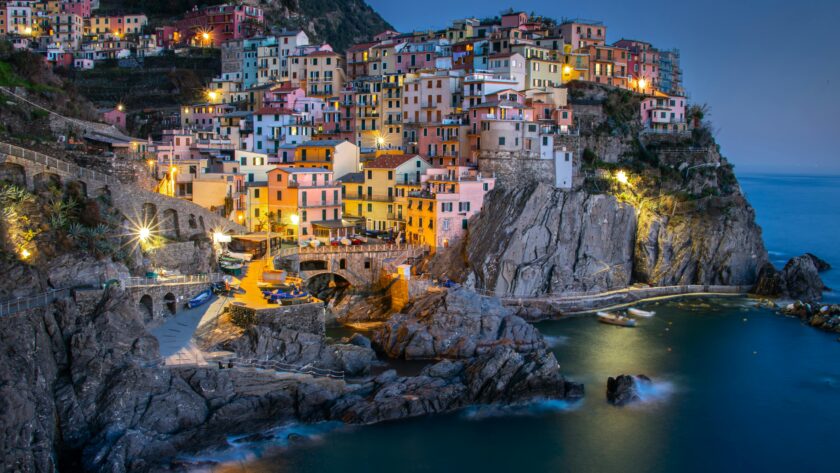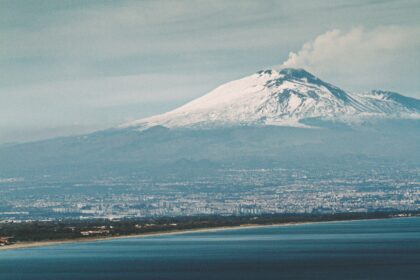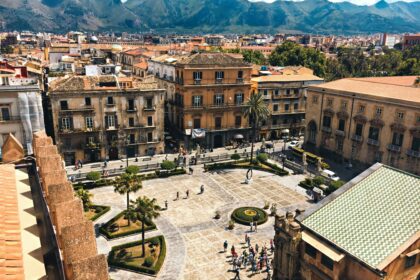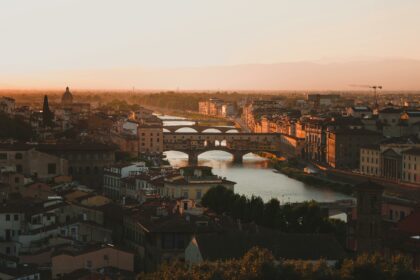Cinque Terre is famous for pastel houses and coastal hikes—but tucked into terraced hillsides lie undiscovered chapelswhose frescoed walls tell centuries-old stories. These hidden sanctuaries offer:
- Immersive Art Encounters: Intimate viewing of medieval and Renaissance frescoes without the crowds.
- Authentic Local Legends: Each chapel has its own lore—miraculous apparitions, patron-saint miracles, and buried treasures.
- Breathtaking Vistas: Perched above vineyards and olive groves, they reward explorers with panoramic sea views.
How to Find Them: Tips & Tools
- Detailed Walking Maps: Download GPX tracks for “Cinque Terre Hidden Chapels” from local hiking apps (e.g., Komoot, Wikiloc).
- Ask at Parochial Offices: Stationed chapels often open by appointment—call ahead in Italian (“Vorrei visitare la cappella di…”).
- Look for Bell-Tower Silhouettes: Small steeples peeking above terraced walls are your best visual clue.
- Visit Off-Season: November–March sees fewer trekkers, making doorway-hunts easier.
- Local Guides & Drivers: Enlist a private driver or guide for lesser-marked mule paths.
The Five Secret Chapels & Their Frescoes
Monterosso al Mare: Cappella di San Cristoforo
- Location: Above Fegina beach, GPS 44.1419° N, 9.6545° E
- Highlight: 15th-century fresco of St. Christopher wading through floods—vivid azure pigments against sun-bleached walls.
- Tip: Ring the iron bell-pull; visit at golden hour for soft light illuminating the saint’s halo.
Vernazza: Oratorio di Santa Maria delle Grazie
- Location: Overlooking the old harbour, GPS 44.1411° N, 9.6692° E
- Highlight: Navicella-style fresco depicting the Virgin’s rescue of shipwrecked sailors, attributed to a Genoese master.
- Local Legend: Fishermen believe a fragment of the fresco once saved a boat from sinking.
Corniglia: Cappella di San Bernardino
- Location: Above the Neptune Trail, GPS 44.1358° N, 9.7160° E
- Highlight: Pastel frescoes of St. Bernardino preaching—remarkable for their surviving gold-leaf accents.
- Access: A steep 450-step ascent; wear sturdy shoes and bring water.
Manarola: Cappella di San Rocco
- Location: Near the Winery Trail, GPS 44.1020° N, 9.7075° E
- Highlight: Vibrant fresco cycle showing St. Rocco’s pilgrimage to Rome; look for the tiny dog at the saint’s feet.
- Combine With: A tasting at the adjacent family-run frantoio (olive mill) for a full sensory day.
Riomaggiore: Oratorio dei Disciplinati
- Location: Hidden in the Valle di Groppo, GPS 44.0982° N, 9.7386° E
- Highlight: A rare 14th-century Crucifixion scene, almost faded to monochrome—but discernible under raking light.
- Photography: Best shot midday; bring a tripod for long-exposure interior captures.
Best Time to Visit & Seasonal Insights
- Spring (April–June): Wildflowers bloom along trails to chapels—ideal for both photography and fresh herbal aromas.
- Autumn (September–October): Vine-harvest celebrations coincide with local “Festa delle Cappelle,” when villagers open every oratory.
- Avoid Mid-July–August: Peak season crowds and searing heat make uphill climbs taxing.
Practical Tips & Safety
- Respect Sacred Spaces: Dress modestly (shoulders and knees covered), speak softly, and avoid flash photography if prohibited.
- Navigation Apps: Download offline maps; cell service can drop in narrow valleys.
- Footwear & Gear: Sturdy hiking shoes, sunhat, and a light torch for dim interiors.
- Water & Snacks: Carry refillable bottles—there are few fountains near these remote chapels.
FAQ
Q: Are these chapels free to enter?
A: Most are donation-based or require a €1–€3 offering to lights and upkeep.
Q: Can I visit all five in one day?
A: Technically yes, but plan a two-day itinerary to savor each chapel and nearby villages.
Q: Is an official guide necessary?
A: Not strictly, but a licensed guide enriches the lore and may secure special access.




